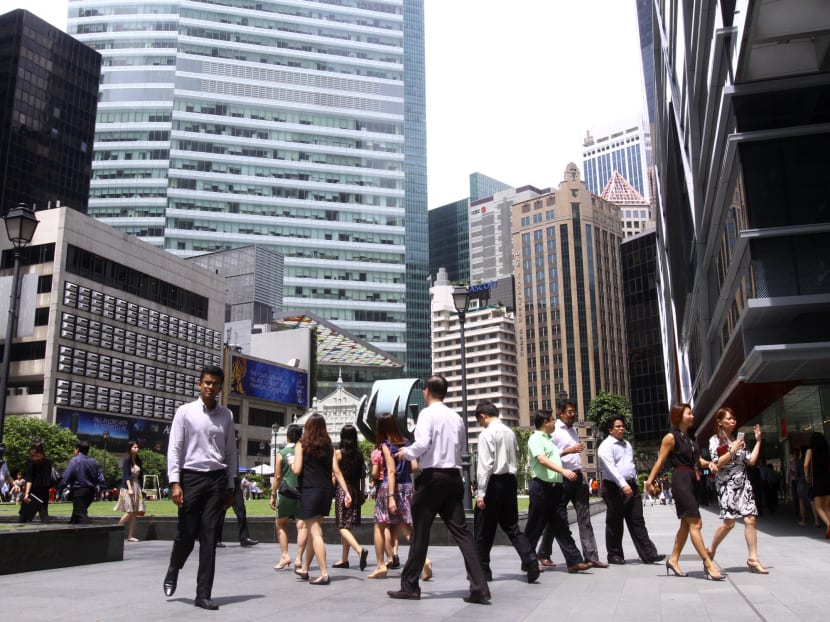Expect lower job growth in next 5 years: Swee Say
SINGAPORE — Job growth will be substantially lower in the next five years, said Manpower Minister Lim Swee Say today (Dec 10), as he urged employers to transform their operations to create more meaningful and efficient job roles.
SINGAPORE — Job growth will be substantially lower in the next five years, said Manpower Minister Lim Swee Say today (Dec 10), as he urged employers to transform their operations to create more meaningful and efficient job roles.
He said job growth is expected to be “significantly” less than the 3 to 4 per cent annual growth seen in the last three years, as Singapore “pursues an economy driven by productivity, innovation” and aims “to become more manpower lean”.
Speaking at the launch of the manpower plan for the retail sector, which focuses on redesigning jobs in the industry and building a workforce to meet the economy’s future needs,
Mr Lim reiterated that the economy and workforce are undergoing a “major transition”.
He noted that growth of the local workforce, comprising Singaporeans and permanent residents, had slowed down over the last decade.
For instance, between 2010 and this year, local labour-force growth was 1.7 per cent every year — a drop from the 2.7 per cent growth per annum seen between 2006 and 2010.
Mr Lim cautioned that local workforce growth is expected to “slow down ever further” in the next five years along with the ageing population. “Local manpower will be harder and harder to come by.”
He stressed that these trends mean that jobs have to be redesigned to make them more meaningful and productive, while workers will have to be well-trained for businesses to be more competitive. “If you put the two together — slower growth in workforce and job growth — our key challenge is to maximise the match and minimise the mismatch between the two.”
Failure to do this could lead to further unemployment as the economy will be affected by businesses that are unable to find enough employees.
There will also be the issue of underemployment if workers cannot find jobs that match their needs and skills, while there could be structural unemployment if workers are not able to match up to transformation in the industry, said Mr Lim.
Previously, former Manpower Minister Tan Chuan-Jin had said that jobs-driven growth might not necessarily be a good thing, since a productivity-driven growth strategy is a more sustainable long-term solution for Singapore.
In his speech, Mr Lim also noted that the retail sector — which has been plagued by a manpower shortage — is undergoing a “game-changing transformation” because of the advent of e-commerce and m-commerce.
“Technology is neutral (and) ideas are also very open ... If you do not (turn technology to your advantage), if your competitors do that ahead of you, technology will become your disadvantage and the idea will become your disadvantage,” he said.
Mr Lim added that the pace of change in the retail industry is only going to get faster, even as local retailers have to grapple with various challenges, such as customers going overseas to shop and rising business costs.
Over the last two years, the retail sector has seen extensive hiring of both locals and foreigners, which Mr Lim said is unsustainable as growth of the local workforce slows down. Statistics showed that for the retail industry, the number of people employed grew by around 10,000 in 2014, compared with 3,900 in 2013, and 7,000 in 2012.
Mr Lim called on retailers to strive for manpower-lean operations as the Manpower Ministry launched the manpower plan for the retail sector to assist the industry with guidelines on best practices and programmes to develop workers, among others.
“At the end of the day, quantity of manpower cannot be the driving force behind (the retail industry’s) growth, you have to go for quality of manpower, quality of operation, quality of efficiency,” said Mr Lim.










